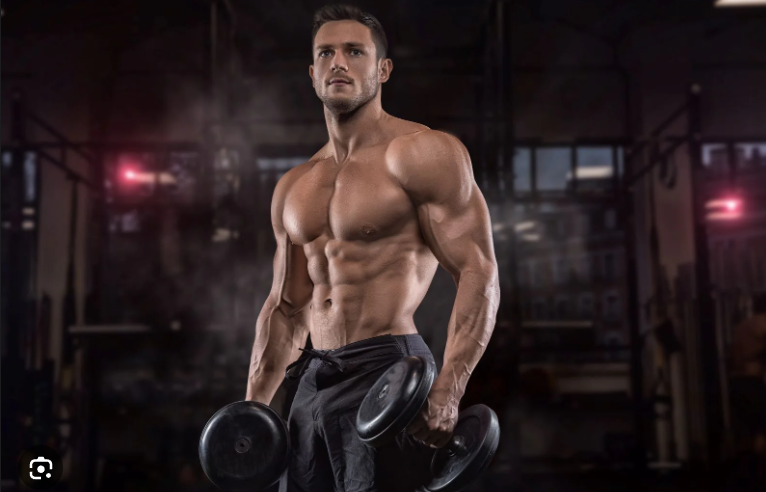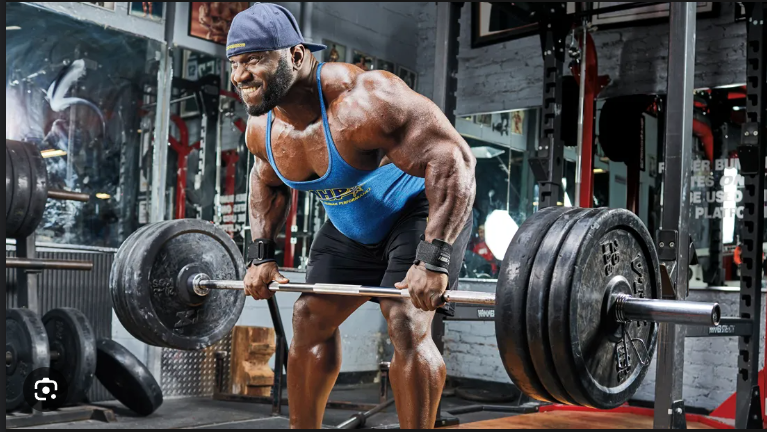Find out which foods are essential for building healthy muscles. Find out which foods and nutrients promote the growth of muscles, strength, general fitness and building muscle
Protein is king when it comes to developing strong muscles. A high-protein diet is usually the first thing that comes to mind when talking about what to eat for healthy, building muscle. Dietitian Sabrina Mottola of L.A. Care Health Plan says, “Protein is a major component of cells that helps in the formation of hormones, neurotransmitters, and enzymes.”

building muscle
Also read-Pandit Jawaharlal Nehru And Children’s Day: A Tribute To The Architect of Modern India
Therefore, protein is a necessary macronutrient that your body needs on a daily basis to support the growth of muscle tissue. It also plays a significant role in immune system strength, blood sugar regulation, and general health maintenance.
What lean protein should you eat for building muscle?
The best-quality proteins come from eating real foods, but there are many brands of protein powders available on the market. These supplements may be a good choice for people who are in a rush or are engaged in intense training.

According to Megan Wroe, a registered dietitian and wellness manager at Providence St. Jude Medical Center in Fullerton, California, “premade protein shakes all day simply aren’t going to cut it.”
Suitable sources of lean protein consist of:
- Chicken.
- Turkey.
- Lean cuts of red meat
- Salmon.
- Tuna.
- Egg whites.
- Plain Greek yogurt.
- Cottage cheese.
- Lentils.
- Chickpeas.
- Tofu.
- Tempeh.
- Edamame.
How much protein should I eat?
How much protein you need each day varies from one person to the next based on a range of factors, including:
- Age.
- Sex.
- Activity level.
- Health goals.
- Medical conditions.

The recommended dietary allowance for protein is 0.8 per kilogram of body weight per day for healthy adults. For example, a 150-pound adult, which is equivalent to 68 kilograms, would need 54.4 grams per day of protein to meet their RDA.
However, many Americans do not consume enough protein. Wroe says she typically advises clients to aim a little higher than the standard RDA for protein to meet their nutritional requirements.
“In working with my clients, I find most people do better with a slightly higher amount of 1 gram of protein per kilogram body weight,” Wroe says. “This increase makes most people feel fuller and is especially better for those who exercise.”
Other Nutrients
Your body requires a variety of other nutrients in addition to protein in order to develop strong muscles. These nutrients that support muscle include:

- calcite. Plain Greek yogurt, cottage cheese, and low- or nonfat milk can help build stronger bones and promote muscle growth. This is due to the high calcium content of these foods, which is essential for both general muscle function and muscle contraction.
- Vitamin D. Because it promotes muscle repair and recovery after injuries, vitamin D is also necessary for strong bones and healthy muscles. It also aids in the body’s absorption of calcium. Even though your skin produces vitamin D when exposed to sunlight, certain foods also contain this vital nutrient, such as UV-exposed mushrooms, egg yolks, sardines, salmon .
- Zinc. In addition to strengthening the immune system, zinc can aid in muscle recovery from exercise. It’s also crucial for the process of protein synthesis, which turns the protein you eat into muscle. Red meat, seafood, eggs, dairy products, chickpeas, beans, nuts, seeds, and whole grains are among the foods high in zinc.
- HMB. The metabolite beta-hydroxy beta-methylbutyrate (HMB) is produced when leucine, one of the nine amino acids used to construct protein molecules, breaks down. According to a review study that was published in Frontiers in Nutrition in 2022, elderly adults’ muscle strength can be significantly increased by supplementing with HMB. Foods high in leucine, which is an amino acid required to produce HMB, include Greek yogurt, milk, salmon, eggs, beef, chicken, chickpeas, and soybeans.
A balanced diet is best
It’s simple to believe that consuming more protein will automatically result in muscle growth, but it’s crucial to approach nutrition holistically.

“We tend to think of protein only in terms of muscles, but remember that the body requires nutrients and energy to properly absorb and use proteins in order to build muscle,” says Wroe.
Mottola continues, “one of the best approaches to meet daily protein needs, while also focusing on a heart-healthy lifestyle,” is a balanced diet such as the Mediterranean diet.
images source: Google
Disclaimer: The opinions and suggestions expressed in this article are solely those of the individual analysts. These are not the opinions of HNN. For more, please consult with your doctor.



































